Marketing is one of those things that is tough to define when it’s good. Some forms of marketing resonate with people, but others do not.
In my opinion, the “Get a Mac” ads were some of the best advertisements I’ve ever seen. They were simple and put a human face on computers. All other advertisements were stuck telling about features (i.e., processor speed, RAM, graphic card, etc.). Apple gave its ads a totally unique spin. The advertisements were simple, funny, and enjoyable.
However, others may see this as bad marketing. Some experts advise against denigrating competition. And sometimes consumers want to learn about the features of a product, and/or want numbers thrown in front of them. So what lessons can we count on to lead us successfully through the uphill battle of marketing?
Well, let’s take a look at 10 of them…
1. “Give them quality, that’s the best kind of advertising.”
– Milton Hershey, Founder of the Hershey Chocolate Company
You can’t market your way out of a bad product; word of mouth is too powerful. You often see this attempted with TV shows. Networks will spend a ton of money to promote a show, but if the show isn’t good, people won’t watch it. On the other end of the spectrum, great TV shows rarely need a lot of advertising. Mad Men, Breaking Bad, and The Walking Dead all spread by word of mouth. The same thing happens with everyday consumer products.
The ultimate focus should be on a quality product. A product cannot spread if it’s low quality, no matter how big the marketing budget. It can spread if it’s high quality, even with little advertising. The Hershey brand is still around today because they make candy that tastes good, not solely because of a big marketing budget. Chipotle is a brand that spread by selling food that tastes good. In their S-1, they write:
“We believe the best and most recognizable brands aren’t built through advertising or promotional campaigns alone, but rather through deeply held beliefs evident in how a company runs its business. By adhering to this principle, we believe that Chipotle is becoming a highly recognized brand. We believe the single greatest contributor to our success has been word-of-mouth, with our customers learning about us and telling others. For example, some of our customers have gone so far as to develop websites about Chipotle. Our advertising has a low-key and irreverent tone that has been popular with customers. Our approach has captured the attention of some of the country’s most renowned news media, including The Washington Post, Food and Wine Magazine, The New York Times, and several well-regarded food critics, which we think is unusual in our segment of the restaurant industry.”
2. “Relying too much on proof distracts you from the real mission – which is emotional connection.”
– Seth Godin, Entrepreneur and Author
No matter how wonderful a product is and how well it works, if the marketing doesn’t form an emotional connection, then some consumers may not connect with it.
Beer commercials are well known for forming an emotional connection with viewers. They show sociable drinkers having a good time and drinking a certain brand of beer. This is a type of product that must use an emotional connection to sell.
Automobile advertising generally combines the use of proof/data and emotions. The ads will state the miles per gallon, warranty, and various features of the car, but they’ll also tell how people feel when they drive the car.
Here is an ad for BMW motorcycles. It’s a spin on the original quotation:
“If you want to be happy for a few hours, get drunk. If you want to be happy for a few years, get a wife. If you want to be happy forever, get a garden.” Here’s the BMW advertisement spin:
Here’s another advertisement, this one about their car:
It can be safely assumed that BMW doesn’t sell to people who care about miles per gallon, but rather to those who buy because of other motives. Their ads form an emotional connection.
In ads, stats and data about a product are not enough. People need to know how they’ll feel when they drive, hold, touch, or operate a product. Everyone is different: some may be sold by the emotional connection, others by the stats, and still others may need a combination of the two.
3. “If you’re not measuring, you’re not marketing.”
– Unknown
If you don’t measure your marketing, you won’t know which channels are the most effective. You’re “left in the dark.” Measuring and analytics turn the lights on.
Without measuring, you’re just putting your voice out there and not even checking to see if anyone is listening or responding. It’s like broadcasting a TV or radio show and not tracking ratings or monitoring listener engagement.
So marketing and measuring go together. And marketers are always measuring the effectiveness of their marketing dollars across multiple campaigns and channels. Let’s look at a few:
Radio:
In radio ads, we’ll often hear announcements of a unique code or address to enter. ProFlowers frequently does this. If you go to the ProFlowers website, you can enter the code:
Click on that, and you’ll be brought here:
When people enter the code, ProFlowers will be able to see which advertising campaigns have been the most successful. Then they can take what they learned and build off of it in future campaigns.
Direct Mail:
Everyone with a mailing address gets direct mail advertising. Many ads will have a web address where you can enter a code. More recently, many are including a QR code in the advertisement. With these unique codes, marketers are able to measure the effectiveness of their marketing.
Television:
Shazam has brought a new way for marketers to measure and engage with their advertising audience. Consumers can open the Shazam app while the ad is playing. This helps the consumer better engage with advertisers. And it helps the advertisers measure their marketing and give their prospective customers more information on the brand, right to their smartphones.
A common tactic that marketers use is to ask new or prospective customers where they heard about them. Then the marketers know which marketing channel brings in the most customers.
Without measuring, you can’t optimize. Therefore, measure your marketing, and you will be able to make better use of your marketing dollars. You’ll save time and be more effective.
4. “Without promotion something terrible happens… Nothing!”
– P. T. Barnum, American Businessman
As we discussed, a quality product may get you only so far. At some point, you need to market the product.
But promotion is all around us, and it can be difficult for marketers to break through the noise.
5. “The most successful communication is devoutly audience focused. Motivating the right people with authentic, value packed content in a relatable way makes great marketing.”
– Georgiana Laudi, Director of Marketing at Unbounce
No audience wants to read a blog that is focused on the company writing it. To write great content, you need to focus on the reader and the entire audience. I wrote a post on lessons to learn from great content sites, and all of the sites I listed have an intense focus on the reader to educate them with valuable content worth their time.
One way to make great content even more valuable is to make it actionable. Give people resources they can use to their advantage.
Investing a significant amount of time in keeping a blog can be one of the best marketing investments a company can make. If the blog is audience focused and value packed, it will be shared and spread quickly to people who may be interested in your product. The key is to focus on the audience and write for them.
6. “The aim of marketing is to know and understand the customer so well the product or service fits him and sells itself.”
– Peter F. Drucker, Management Consultant
Have you ever tried out a product that you just loved and felt like it matched your needs and fit you perfectly? It was a product so good that, once you interacted with it, there was no salesman needed because the product truly sold itself. It left no doubt in your mind that it was what you needed.
Most people probably would say the iPhone is that product. It’s a phone so well done that you can’t picture yourself using anything else.
Marketing just gets people in the door. The actual selling is when the consumer tries the product. Drucker says that “the aim of marketing is to make selling unnecessary.”
If the customer walked in the door and bought the product without a salesman, then the marketing worked. There was nothing additional needed. The marketing brought the customer in the door, and the product sold itself. The reason the product sold itself was because the business understood the customer very well.
Peter Drucker’s quote should be the goal for every marketer and business.
7. “Truly brilliant marketing happens when you take something most people think of as a weakness and reposition it so people think of it as a strength….brilliant marketing is taking the product you have and figuring out the right positioning.”
– Reed Hastings, Co-Founder and CEO of Netflix
Within this quote, Hastings discusses his marketing at Netflix. He says:
“With Netflix, the big weakness is that it takes a day to get your movie. If we talked about that, that would be ineffective. So what we talk about is no late fees, no due dates, and being aggressive on price. You focus their attention on features that are compelling, like allowing people to keep movies as long as they want. Most people always try to fix the product, which is a good thing. But brilliant marketing is taking the product you have and figuring out the right positioning.”
Every product has its weaknesses. Some companies are just better at hiding them than others. Netflix DVD by mail has its weaknesses, as Hastings mentioned, but Netflix didn’t focus on the downside. Blockbuster did, and it left consumers unconvinced. Netflix competed with Blockbuster on price and won. They also won on selection.
Netflix streaming has its shortcomings as well. Its streaming library isn’t as big as its DVD library, but Netflix doesn’t focus on that. The focus is on the movies it does have, that they load within 30 seconds, and that they are available on multiple devices.
Emails typically have a 5 second delay, meaning that it takes the servers 5 seconds to actually send the email. Many see this as a bug, but Google makes the best of it by letting users undo sent mail. The only problem is that the user must press the undo button within 5 seconds. Anything past that and the email is sent. This isn’t exactly a great feature to market, but the company is making the best out of what previously may have been seen as a weakness.
8. “Focus on the core problem your business solves and put out lots of content and enthusiasm and ideas about how to solve that problem.”
– Laura Fitton, Founder of OneForty
Content marketing is a very effective way to spread the word about your product. Fitton advises marketers to write about the problem that your product is trying to solve. You also can discuss the solutions, but the key is to write lots of content about your industry.
People may not realize the problems or opportunities and solutions that are out there if no one is talking about them or writing about them. HubSpot might not be where it is today without consistently writing content for an audience interested in its product. They write for marketers and sell a SaaS product for marketers. This ties into our next quote…
9. “To be successful and grow your business and revenues, you must match the way you market your products with the way your prospects learn about and shop for your products.”
– Brian Halligan, Co-Founder and CEO of HubSpot
Put yourself in the shoes of a prospective customer for just a moment (or more if you’d like). Ask yourself:
How do I find the product you’re selling? How will I come across your product if I’ve never heard of it?
Now, as a marketer, ask yourself:
How would a prospective customer come across my product even if they weren’t looking for it? What kinds of searches do they do that would lead them to our site?
Let’s use HubSpot as an example. If one of their future customers wants to know about a good landing page tool, they’ll use Google to find one and receive the following results:
Or if someone is looking for lead management software, they can do a search on Google and get a recommendation for HubSpot:
The payoff to HubSpot for being a top result of these searches is considerable. They’re a top organic result for a search term about a product that businesses buy. There is no expense for HubSpot when people click their link.
This is HubSpot’s marketing. So invest a lot of time and effort to get in the top search results and get seen by people who are searching for the type of product you sell. HubSpot is matching their marketing of products with the way people search for them.
10. “Don’t be afraid to get creative and experiment with your marketing.”
– Mike Volpe, CMO of HubSpot
There are many different types of marketing. Marketers have dozens of channels they can use and an endless number of messages to try. On the web, many will experiment with their call to action buttons. Other web companies will use additional channels for their marketing. Salesforce used to run TV advertisements, including one for the Super Bowl.
The benefit of experimenting and trying a variety of things is that you can see if one marketing channel is more effective than another one. Companies that stick with one marketing channel may be missing out on others that could give them more bang for their buck. A good analytics tool can help marketers discover which channels bring in the most valuable customers.
Experimenting expands beyond just channels. Marketers also can test their messages. Microsoft has tested multiple messages for their Bing product. From the “search overload” to the “Bing it On” campaign, Microsoft has tried a number of messages along the way to take some market share from Google.
If you want to optimize your marketing, try experimenting. Marketing experimentation is not a prerequisite for success. Some companies have been very successful using only one channel and one message, with the Shane Company being a prime example. Others have been successful with experimentation. But whenever possible, take the path of experimentation.
In Closing…
If you’ve been a marketer, what have you learned? Is there a particular marketing quote that you like? I look forward to a good marketing discussion in the comments.
About the Author: Zach Bulygo is a blogger, you can follow him on Twitter here.
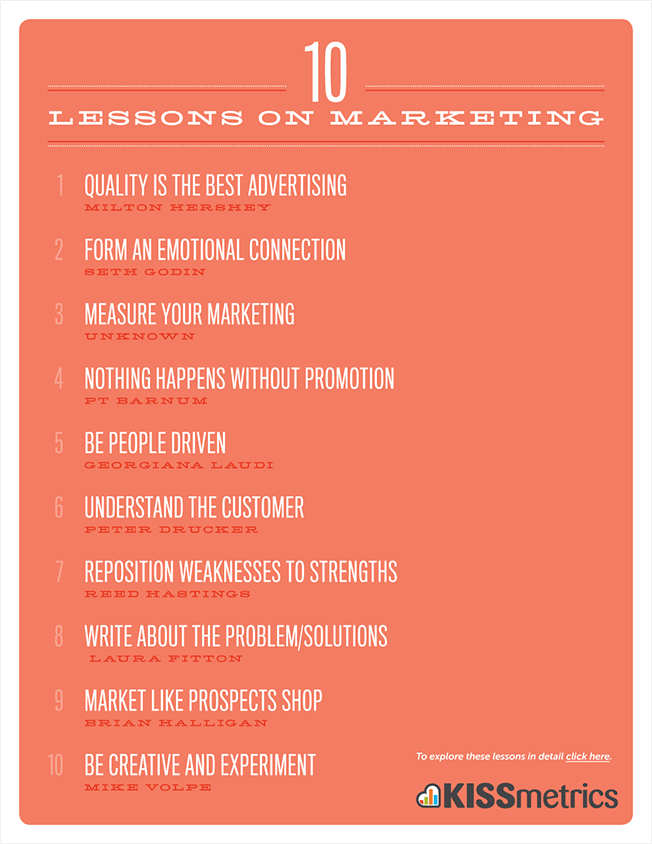
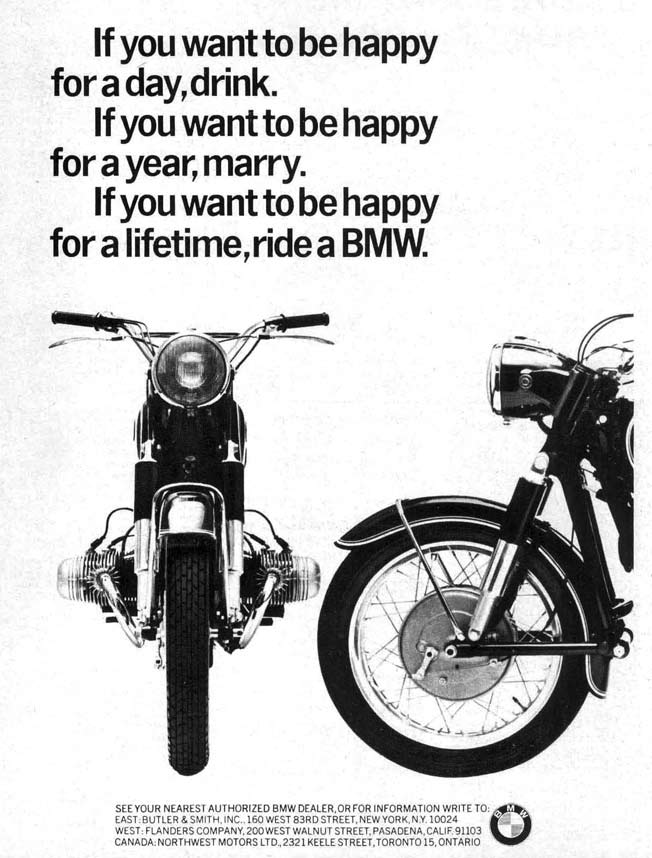
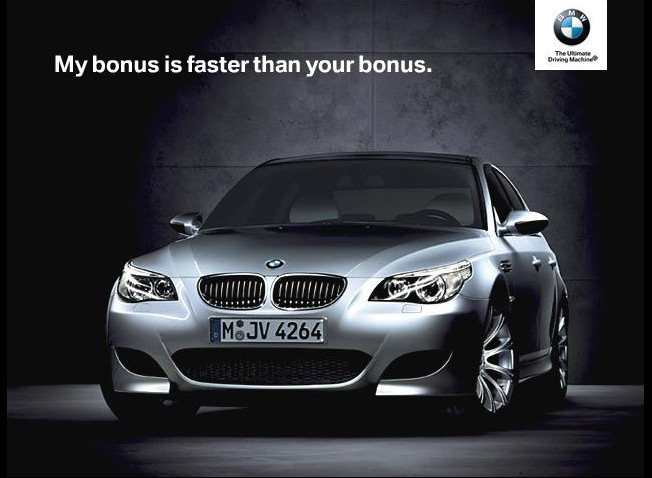
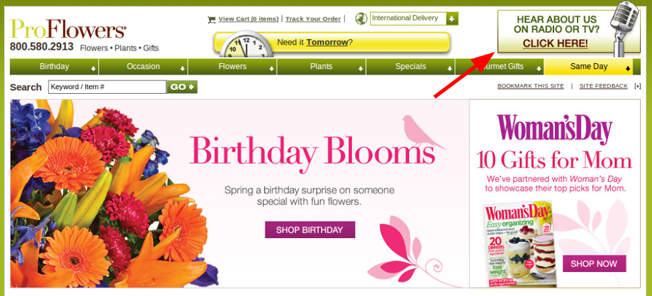
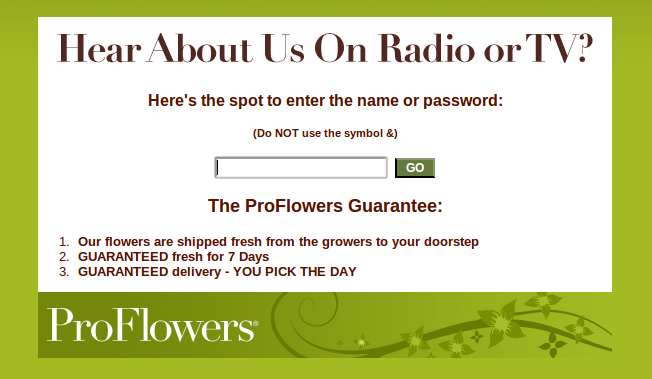
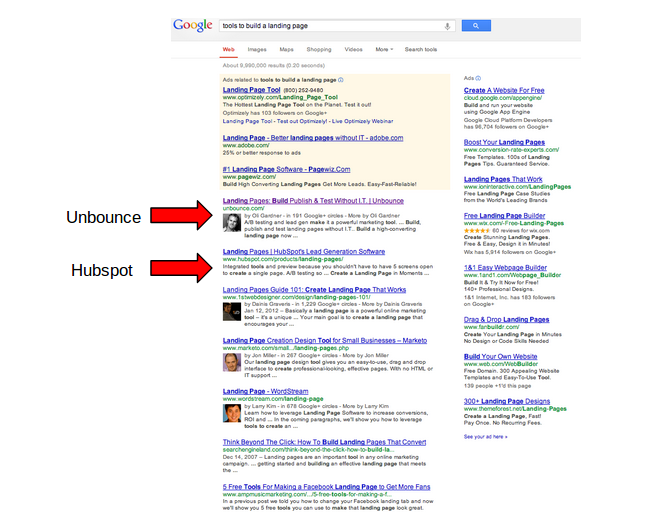
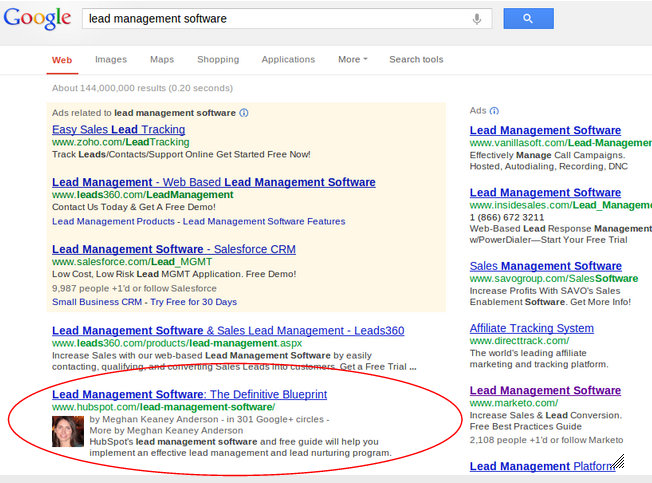
Comments (13)